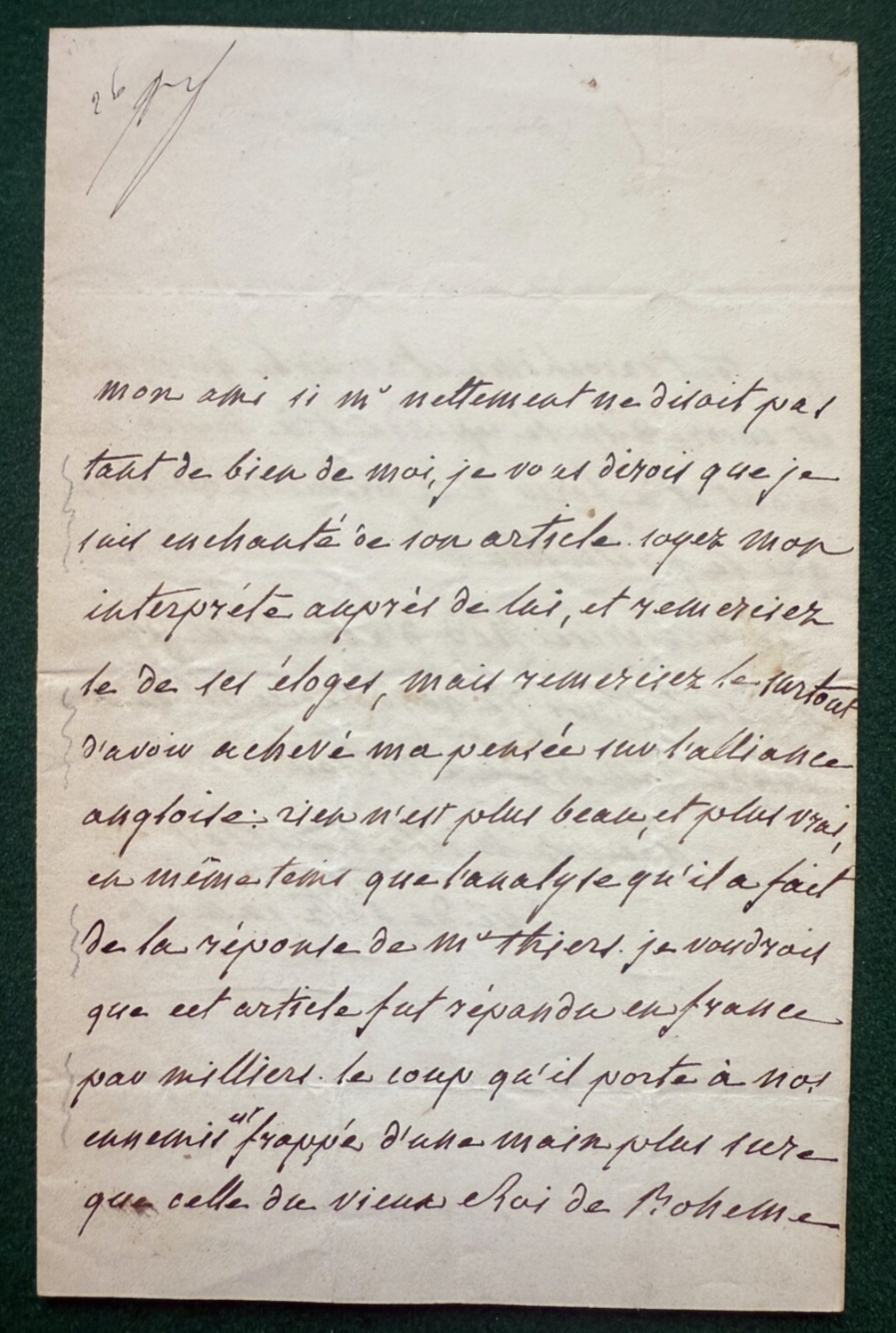
Antique Signed Letter Jacobite Duke Edouard de Fitz-James House of Stuart Walsh
Reliable shipping
Flexible returns
"My friend, if Mr. Nettement did not say so many good things about me, I would tell you that I am delighted with his article. Be my interpreter to him, and thank him for his praise, but above all thank him for having expressed my thoughts on the English alliance. Nothing is more beautiful, more true than the analysis he made of Mr. Thiers’s response. I wish that this article would be spread throughout France by the thousands. The blow it delivers to our enemies was struck by a surer hand than that of the old King of Bohemia, who, however decrepit and blind he may be, is still disposed to hobble forward and to strike at the first opportunity that arises. I thank Mr. D. for having kindly thought of me. I will keep this model of fashion as a treasure.
With a thousand friendships,
Duke of Fitz-James"
The FitzJames family of Jacobite origins descended from James FitzJames, 1st Duke of Berwick, the illegitimate son of King James II of England. The family settled in France and became part of the French aristocracy, often supporting legitimist and royalist causes. The author may have been Édouard de Fitz-James (1776–1838) or Jacques de Fitz-James (1803–1881). The letter refers to Alfred Nettement (1805–1869), a French journalist and legitimist thinker known for his Catholic royalist convictions. He frequently published political articles defending traditional values and alliances such as the Anglo-French relationship. Adolphe Thiers (1797–1877) was a prominent French statesman and historian. He served as President of the French Republic and was known for his opposition to Napoleon III. Thiers is referenced here for a statement or stance he made, which Mr. Nettement is praised for analysing. The Old King of Bohemia is a mocking reference likely to Ferdinand I of Austria (1793–1875), who was also King of Bohemia. Ferdinand, who suffered from significant disabilities. The letter uses him metaphorically to represent feeble or reactionary powers still attempting to exert influence. The English Alliance refers to the idea of a diplomatic or political alliance between France and England. In the 19th century, relations varied, but there were notable moments of cooperation. The author strongly supports this alliance as a counterbalance to conservative continental powers. The letter is addressed to Vicomte Antoine de Walsh (1804–1872), a French nobleman, writer, and politician associated with the Legitimist movement. He edited the royalist newspaper 'L'Union' and was active in promoting the interests of the Bourbon monarchy. Walsh was known for his devout Catholicism, conservative views, and close connections with other royalist figures such as Alfred Nettement and the Duc de Fitz-James. His address at 290 Rue Saint-Honoré, Paris, placed him in the intellectual and political heart of 19th-century conservative French society.
Size: 13 x 20.5 cm approx
Country of Origin: France
Sub-Type: Royalty
Type: Historical
Signed: Yes
Object: Signed Letter



